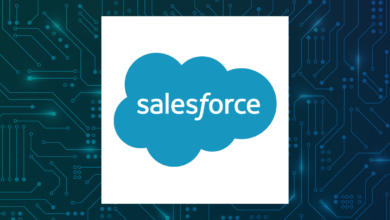Evaluate and choose from the top 10 data profiling tools

Data profiling is essential for data analytics, data management and BI processes including data cleansing, transformation and decision-making. Consider key profiling capabilities when choosing a data quality management tool.
Data profiling tools help analyze a dataset’s characteristics and quality. They highlight the data’s structure, content and relationships to identify inconsistencies, errors, patterns and anomalies. Many open source data profiling tools can facilitate analysis, but don’t streamline data quality processes.
Data quality management tools can take insight from data profiling to improve the accuracy, consistency and completeness of the dataset. For example, profiling might identify a high number of missing values to prompt further investigation or cleansing efforts.
Data profiling tools can also investigate business data in various systems, such as CRM and ERP applications. In a CRM use case, the tool helps identify missing values and checks for inconsistencies or inaccuracies in contact details, addresses or purchase history. It can also identify variations in data formatting or naming conventions and detect duplicate customer records that might lead to confusion and inaccuracies.
Top considerations for choosing a data profiling tool
Ameya Kawaleyy — director, architecture and DevOps at AArete, a global management and technology consulting firm — said that in choosing a data profiling tool, several considerations should come to the forefront:
- Automation. Automated functionalities can streamline repeatable workflows and reduce manual effort.
- Capabilities. Intricate profiling tasks support the assessment of data quality, identification of schemas and analysis of data lineage.
- Compatibility. Support for a wide spectrum of data sources, including databases, files and cloud services, can help effectively navigate the disparate sources of data.
- Scale. Support and manage substantial data volumes that enable the seamless handling of data growth.
- Security and privacy. Stringent adherence to data privacy regulations helps ensure efficient, compliant and secure profiling practices.
- User-friendliness. Ease of use can help democratize data profiling processes.
Open source or vendor tools?
You can consider a range of open source and proprietary options. Open source tools are free and usually have a community of peers that can share best practices. Several vendors made their data profiling tools open source, including Ataccama and Talend. Open source tools provide base data profiling capabilities, with adjacent tools, professional services and support offering more advanced capabilities.
All commercial data quality management platforms support various data profiling capabilities. Options range from relatively inexpensive CRM add-ons for cleansing customer data to full-blown data quality management capabilities for all types of enterprise data.
Both approaches have pros and cons. Open source tools benefit from no licensing fees, transparent development practices and inherent capacity for tailoring to precise specifications, Kawale said. They can also derive strength from a dynamic and expansive developer community, ensuring continual support and updates.
It may be easier to customize and extend open source tools for various data quality workflows because the source code is freely available. You can vet the underlying source code to ensure there are no underlying functionalities that could compromise data security. In addition, you are not tied to a particular vendor if they change their product roadmap, support or go out of business.
Open source data profiling tools also have some potential drawbacks that need careful consideration, said Matt McGivern, a managing director at Protiviti, a management consulting firm. Open source limitations include the number of available features, the absence of formal support and the possibility of dealing with an inactive or less transparent development community. Less active communities might not promptly address defects or apply necessary security patches.
Implementation time can take longer, and integrating outputs from profiling results into other systems, such as ticket management or quality assurance tools, is more difficult. Workflows can differ greatly between open source and vendor supported offerings, McGivern said. Automation capabilities and easy-to-use connectors are often less available in open source profiling. As a result, connecting to different types of data stores and automating the collection of results might not be available or are more challenging. Important questions to ask include the following:
- What does the rest of the infrastructure look like?
- Do you have the expertise to implement with potentially less support or expertise provided by a vendor?
Commercial data profiling tools might support advanced features, better integration capabilities and paid support. They can be more accessible for users with varying levels of technical expertise and tend to provide better training and technical support, Kawale said.
Vendor tools are often built to enterprise needs, offering scalability, security and better integration with other enterprise systems. Prebuilt templates may also provide features that can accelerate data profiling processes in concert with other data quality efforts. In addition, they might provide features that help data governance, compliance and audit trail tracking. However, they also come with licensing fees and may limit customization possibilities.
Deciding whether open source or commercial is the best choice depends on your organization’s goals, resources and technical capabilities. In some cases, a hybrid approach that uses open source tools in concert with commercial data cleansing platforms might be worth considering.
Top data profiling tools to consider
Consider the following top 10 data profiling tools. When selecting tools, TechTarget editors focused on popular offerings that excel across a variety of different situations and used market reports and research from respected firms including Capterra, Gartner and G2. The list is unranked and in alphabetical order.
Apache Griffin
Apache Griffin is an open source data quality tool designed to improve processes for working with big data. It can clean batch and streaming data. Its data profiling capabilities help measure data quality from different perspectives. You can define data quality metrics using a domain-specific language and use the same language to customize it for other domains. Released in 2016, it has a sizeable community, including enterprises such as eBay, PayPal, Expedia and VMware. It’s a good fit for technical experts and data engineers who want to customize their own data cleansing pipelines.
Ataccama ONE
Ataccama provides an integrated platform featuring data profiling, data quality, master data management, a data catalog and reference data management. The company also offers various professional services and support for enterprises that need help customizing or managing large data quality processes. The data profiling tool helps identify data quality problems, report when it’s fixed and export the results to other tools. It also has a community with more than 55,000 users sharing best practices. It’s an option worth considering for companies that want to try new data profiling capabilities with an eye toward better support and integration down the road.
Collibra Data Intelligence Platform
Collibra launched in 2008 to provide data intelligence tools for business users. The company helps simplify data integrations with modern data platforms from AWS, Google Cloud, Snowflake and Tableau. Its data intelligence tools summarize data sources that a data catalog can manage. Collibra’s Edge and Jobserver services can access data profiling capabilities. The latter has a limit of 10 gigabytes. It also includes tools for anonymizing results on sensitive data records. The main value of Collibra’s approach comes from deep integration into the Collibra Data Intelligence cloud, which supports a data catalog, data governance, lineage and protection.
DataCleaner
DataCleaner is an open source data profiling engine for discovering and analyzing data quality issues. It helps find patterns in data and identify missing values or other data characteristics. It works with Excel CSV formats and larger relational and NoSQL databases. Data scientists, data engineers and business users can build and run cleansing rules against a target database. Cleansing rules can automatically find and replace bad data using regular expressions, pattern matching or custom rules. The project has a large ecosystem of plug-ins and connectors that can customize the tool for various use cases.
IBM InfoSphere Information Analyzer
IBM provides two data profiling tools across its portfolio of data management tools: InfoSphere Information Analyzer and InfoSphere Quality Stage. The analyzer tool focuses on data profiling specifically, and various data quality and transformation tools use its results. QualityStage supports data profiling but has tighter integration into other aspects of data cleaning, enrichment and quality. Both tools can help identify missing, incorrect, bad or redundant data. Continuous data quality assessment provides feedback when data-gathering processes go awry. In addition, they both support advanced analysis and reporting with dozens of reports on data quality trends.
Informatica Data Quality
Informatica was launched in 1993 to improve data integration for large enterprises. It provides various associated tools for extract, transform and load, information lifecycle management, complex event processing, and cloud integration. The company’s data quality tools ensure data consistency, build trust and cleanse data for various applications. Data profiling capabilities directly integrate into other Informatica tools. It’s a good fit for enterprises looking for a full-fledged data quality platform that builds on continuous data profiling results.
OpenRefine
OpenRefine is an open source desktop tool for data cleansing and transformation. First released in 2010, it works with spreadsheets and relational databases. Data engineers and business users can record actions around profiling and cleaning up one dataset, then replay it for other datasets. It can clean and profile messy data, transform it to other formats and parse data from websites. Metaweb developed the original data profiling tool as Freebase Gridworks, which Google later acquired and renamed Google Refine. After Google stopped active support, the name changed to OpenRefine. It has a long history and supportive community. It’s a good fit for users who want to do data profiling and cleansing on their desktops.
SAP Business Object Data Services
SAP is a clear leader in ERP. Its Business Object Data Service supports various capabilities that enhance SAP Data Service’s accuracy, reliability and data tracking. It’s a good fit for enterprises with an existing SAP footprint. Its data profiling capabilities plug into the broader SAP Data Services toolset as the first step in continuous data monitoring and improvement. It can help business users understand their data, identify gaps in acquiring data, and then work with front-line teams and data engineers to rectify the gaps. Its strengths include metadata management, data integration, cloud databases and data quality.
Talend Open Studio
Talend Open Studio is an open source offering from a commercial vendor. Talend Open Studio has a strong suite of data profiling capabilities that integrate into various data cleansing tools and workflows. The tool helps data engineers build basic data pipelines across databases, analytics and application workflows. It’s a good fit for teams that want to explore data profiling for free and have the option for a more governed, secure and scalable process down the road.
Validity DemandTools
Validity helps optimize business processes that use CRM data, such as email marketing performance improvement, data management and sales functions. It provides direct integration into Salesforce to improve workflows around CRM data. Validity DemandTools efficiently cleans and processes Salesforce data. It’s a relatively inexpensive option for organizations that need a tool focusing on customer data. Services start at $10 per Salesforce user per month. It does not have the depth and breadth of other tools, but it highlights the value of combining data profiling with existing apps rather than other general offerings focused on data profiling.
George Lawton is a journalist based in London. Over the last 30 years, he has written more than 3,000 stories about computers, communications, knowledge management, business, health and other areas that interest him.


